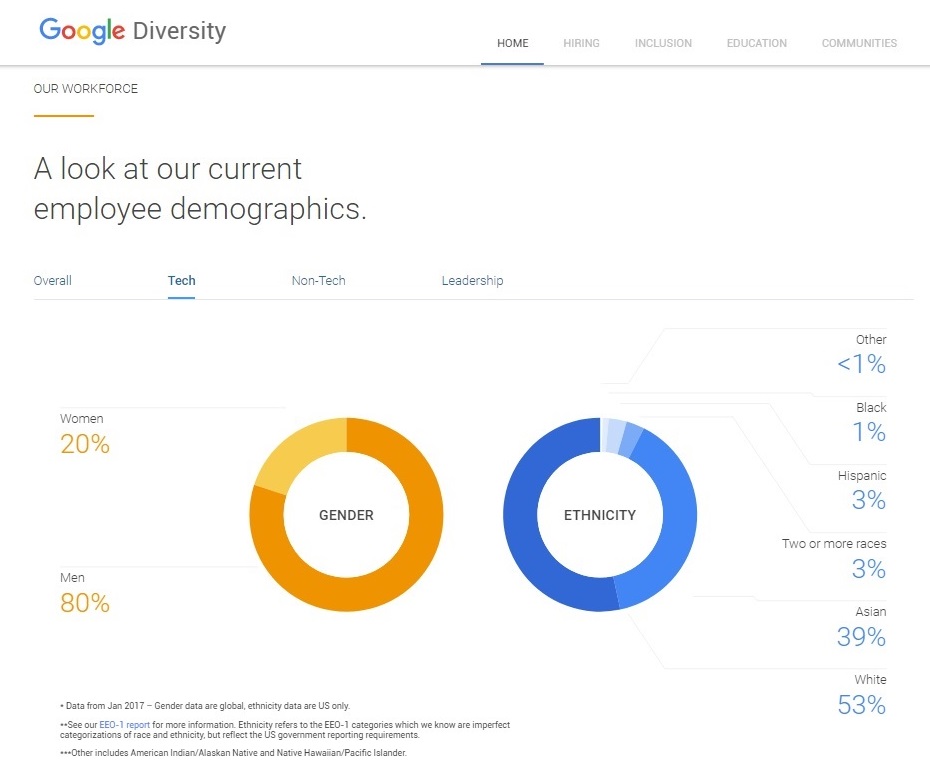From her piece on fortune, Susan Wojcicki said:
"For instance, what if we replaced the word “women” in the memo with another group? What if the memo said that biological differences amongst Black, Hispanic, or LGBTQ employees explained their underrepresentation in tech and leadership roles? Would some people still be discussing the merit of the memo’s arguments or would there be a universal call for swift action against its author?"
"In our sample of Google salaries, men and women are definitely not equally represented among job titles. For example, about 52 percent of males in our data worked as highly paid software engineers, while just 21 percent of women worked in those roles. By contrast, 6 percent of women in the sample worked as product marketing managers, while just 2 percent of men worked in those roles..."
"Men and women for a variety of reasons tend to be sorted into different jobs — even within the same company — and those different roles pay differently," he says. "This new research shows this same phenomenon likely explains much of any overall gender pay gap at companies like Google as well."

“The author of the Google essay on issues related to diversity gets nearly all of the science and its implications exactly right,” acknowledged, Lee Jussim a professor of social psychology at Rutgers University.
Because of this Google has painted themselves into a legal corner. On one side, by firing James they've proven that they disagree with the ideas that he brought forward. Thus, they can’t credibly use those points to explain the noticeable contrast between men and women within their company. So, if the inequality can’t be explained by natural distribution, then the only thing left to presume is that Google has purposefully promoted inequality costing them the lawsuit.



